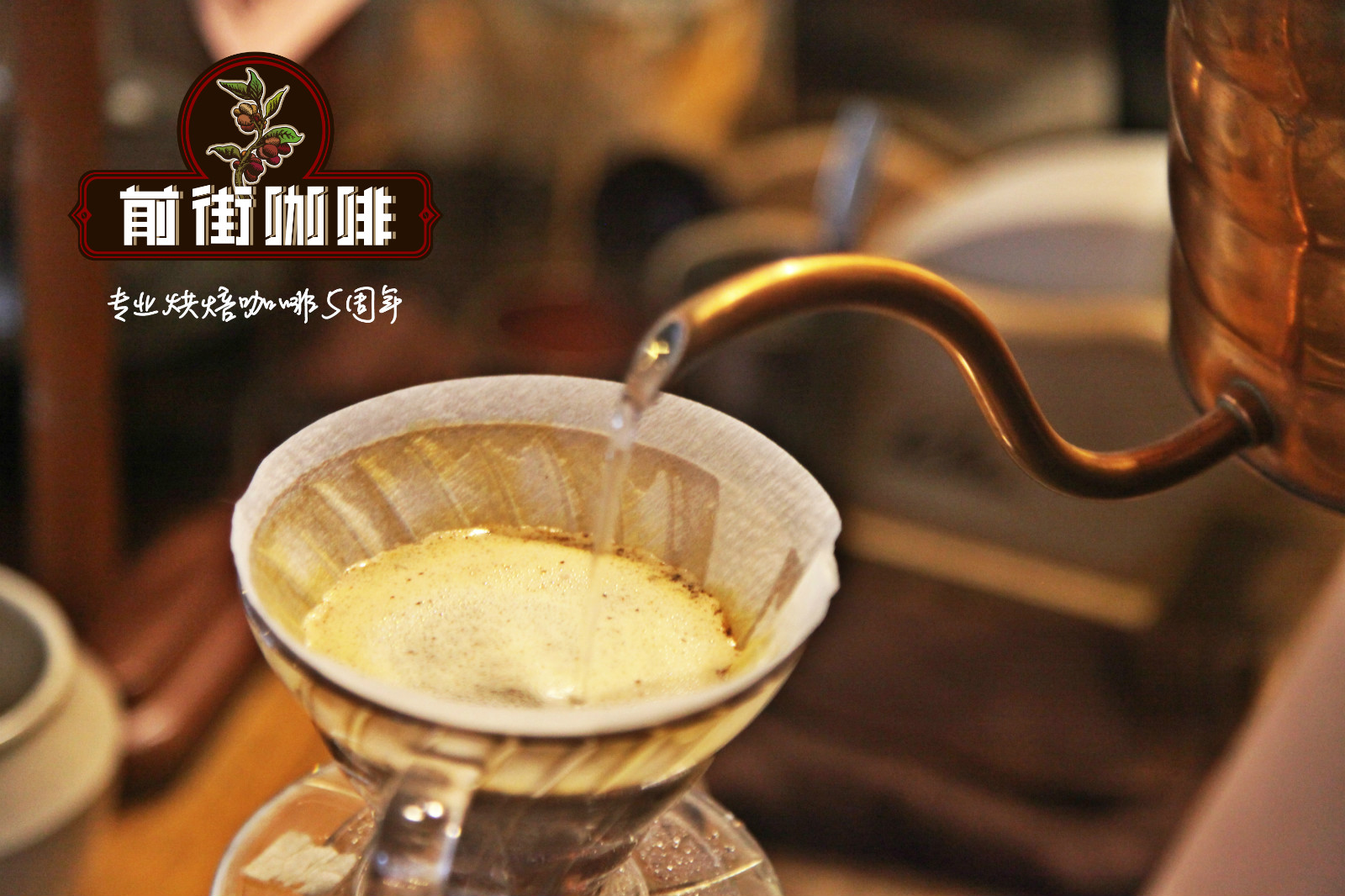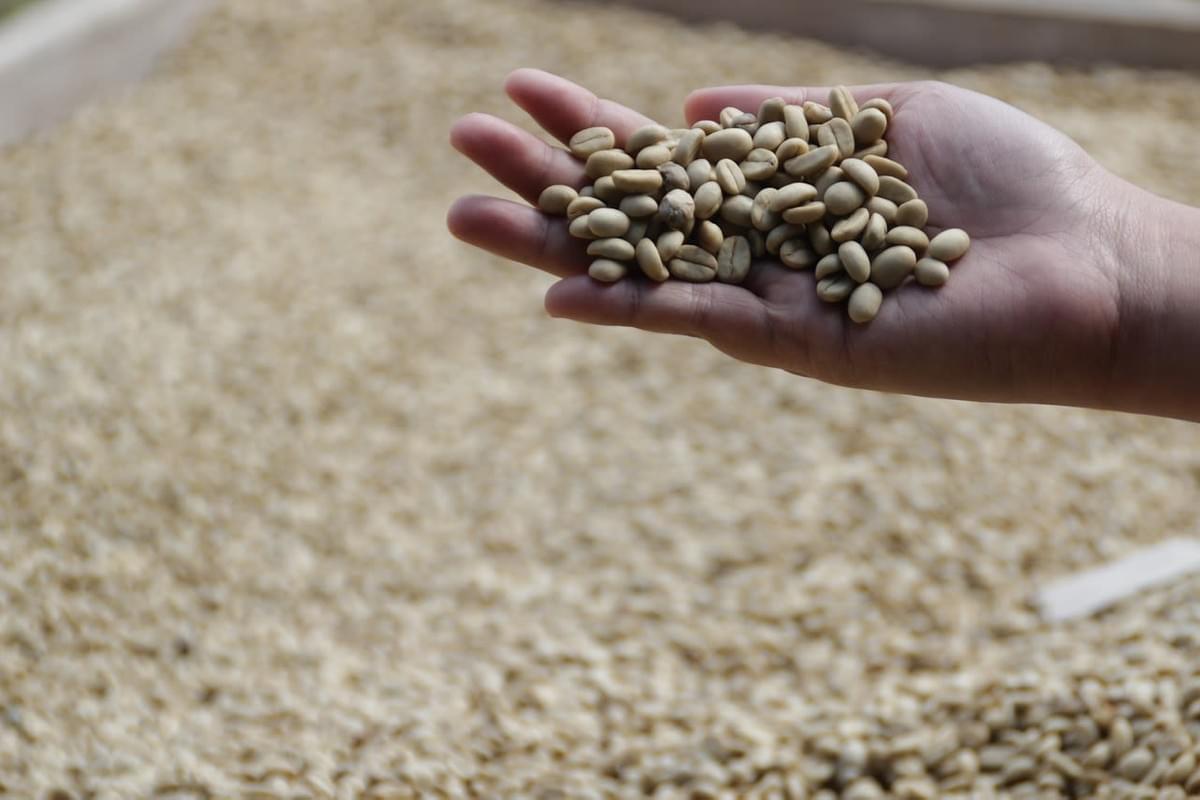Introduction of Alida Manor, the victorious army of B.O.P (Best of Panama)
Professional coffee knowledge exchange more coffee bean information please follow the coffee workshop (Wechat official account cafe_style)
Alida Manor (Elida Estate)
In recent years, the winner of B.O.P (Best of Panama) has also been shortlisted in B.O.P in 2018 and won a number of rankings, and won the B.O.P championship in 2017, setting an unsurpassed 94.15 points.
Alida Manor is uniquely located in the Boquete producing area and is one of the highest coffee estates in Panama. And nearly half of the area is in the national conservation park, which is an ultra-high altitude manor rarely seen in Central America!
The estate, which dates back to 1918, is the property of the Lamastus family, and the name of the farm, Elida Alida, is the name of the then farmer, Mrs. Robert Louis Lamastus.
Alida Manor
Elida Manor has a total area of 65 hectares, more than half of which are located within the Baru Volcano National Park, 30 hectares of the estate are planted with coffee trees, and the remaining 35 hectares are virgin forests. Coffee is grown from 1670 to 1850 meters above sea level, making it one of the two highest coffee farms in Panama.
The rugged mountain of Balu is a young volcano, more than 3400 meters above sea level, an active volcano, surrounded by seven different micro-climatic zones, brewing a rich and diverse ecological environment, and Arida Manor straddles them. A diverse micro-climate has both advantages and disadvantages for coffee growing. for Arida, her flavor is richer and more varied than most Panamanian coffee. Of course, the terrain at ultra-high altitude also has its drawbacks. Due to the excessive temperature difference between morning and evening, it takes five years for the coffee to be harvested for the first time after sowing. The waiting period for receipt is quite long (usually only 3 years for coffee in the producing area). Although the plant growth is slow, it is very helpful to the development of coffee flavor.
After entering the harvest period, the ripening period of coffee is often more than a month due to the relationship of temperature. when irresistible factors such as hurricanes and heavy rains come on the eve of ripening, it is well known that it will cause heavy losses, but because the beans do not meet the harvest standards of the manor, under the insistence of quality, refuse to rush to harvest, resulting in a sharp decline in harvest! The risk is actually much greater than that of other low-altitude estates.
There are three main varieties planted in Elida Manor, namely, Catuai (Kaduai), Typica (Iron pickup) and Geisha (Rose Summer). The processing plant of the manor is halfway up the hillside. After the coffee is picked, it can be transported to the factory for processing as soon as possible to ensure that the quality of the coffee fruit is not affected.
Of course, Elida's environment is also suitable for growing other high-quality temperate crops, especially tree tomatoes and some uncommon high-altitude fruits, which are interestingly often found in Elida coffee.
In addition to the unique ultra-high altitude and microclimate, Mr. Wilford, the owner of the manor, has also made considerable efforts in harvesting and processing. In order to meet the highest standard, the coffee at Elida Manor is only allowed to pick the most ripe coffee fruit (Ripe on Pinton) by hand with high maturity and natural high sugar content of pectin, which is also the basis for producing high-quality Elida flavor.
Mr. Wilford, the landowner, is extremely strict in growing coffee. Three different post-treatment methods are used in the manor. Washing method (Washed Process), honey treatment method (Honey Process) and sun treatment method (Natural Process). The system for washing coffee fruit has zero sewage discharge, which means that the water used to wash coffee will be mixed with pectin and peel and pulp as fertilizer. In the sun treatment, the coffee fruit will take about ten days to dry to reach 10% water content. No matter which post-processing method is used, the batches harvested every day will be separated, most of which are about one to ten bags of raw beans, an average of about five bags. Sometimes different batches are judged by cup test, and batches with similar flavor can be mixed into a larger batch. When the coffee is processed to the state of shell beans, it will be cooked for about 75 to 100 days, and the defective beans will be removed by hand before export.
The "purification" of raw beans is also more stringent than those of the same industry. In the case of Panama Alida, it takes more than 5 months of low temperature Resting to remove green after raw beans are processed, so that the flavor of coffee can be more balanced and full. (low temperature Resting is the concept of raw bean purification promoted by coffee master George Howell in 2006. We found that raw beans in subtropical places need to be kept at low temperature, but different treatment methods and elevations will change the time of low temperature Resting. For Alida, Panama, 5 months of low temperature Resting is the best).
Elida Estate has already made itself one of the most respected boutique coffee farms in Panama. In addition to his annual ranking in BOP, there are many bean bakers and baking factories in the world who are loyal fans of him.
Cup tester Ken Davids scored a high score of 93 for coffee at Elida Manor in 2012! Elida is also a regular on the bean list of players from all over the world in the World Barista Competition (WBC). It is also common to see contestants use a single Elida to concentrate SOE in the finals of Taiwan's TBC (Taiwan baristas contest) and domestic CBC (Chinese baristas competitions).
Due to the unique geographical conditions and the persistence and pursuit of coffee quality by the landlord Mr. Wilford, Elida (Alida Manor) has been ranked as one of the three major estates in Panama along with La Esmeralda (Emerald Manor) and Kotowa Duncan (Duncan Manor).

End
Important Notice :
前街咖啡 FrontStreet Coffee has moved to new addredd:
FrontStreet Coffee Address: 315,Donghua East Road,GuangZhou
Tel:020 38364473
- Prev

Introduction to Ana Sora Coffee at Ana Sora Coffee Manor in Gujiso, Ethiopia
Professional coffee knowledge exchange more coffee bean information please follow the coffee workshop (Wechat official account cafe_style) Ethiopia is the birthplace of the Nile, and the most memorable thing about water-washed Yega snow is its rich, delicate and changeable elegance. Production area: Guji planting altitude: 1900-2350 m classification standard: G1 treatment: enzyme washing treatment sipping citrus
- Next

Understanding Coffee Raw beans: quality, name, Transportation and Preservation of Raw beans
Professional coffee knowledge exchange more coffee bean information please follow the coffee workshop (Wechat official account cafe_style) 1. The quality of raw beans when we judge the quality of raw beans, we should not only observe whether they are mixed with defective beans, but also pay attention to the color, luster, water content and so on. The color varies according to the way it is handled, and the water-washed coffee beans will appear blue-green, but during preservation
Related
- Does Rose Summer choose Blue, Green or Red? Detailed explanation of Rose Summer Coffee plots and Classification in Panamanian Jade Manor
- What is the difference between the origin, producing area, processing plant, cooperative and manor of coffee beans?
- How fine does the espresso powder fit? how to grind the espresso?
- Sca coffee roasting degree color card coffee roasting degree 8 roasting color values what do you mean?
- The practice of lattes: how to make lattes at home
- Introduction to Indonesian Fine Coffee beans-- Java Coffee producing area of Indonesian Arabica Coffee
- How much will the flavor of light and medium roasted rose summer be expressed? What baking level is rose summer suitable for?
- Introduction to the characteristics of washing, sun-drying or wet-planing coffee commonly used in Mantenin, Indonesia
- Price characteristics of Arabica Coffee Bean Starbucks introduction to Manning Coffee Bean Taste producing area Variety Manor
- What is the authentic Yega flavor? What are the flavor characteristics of the really excellent Yejasuffi coffee beans?

